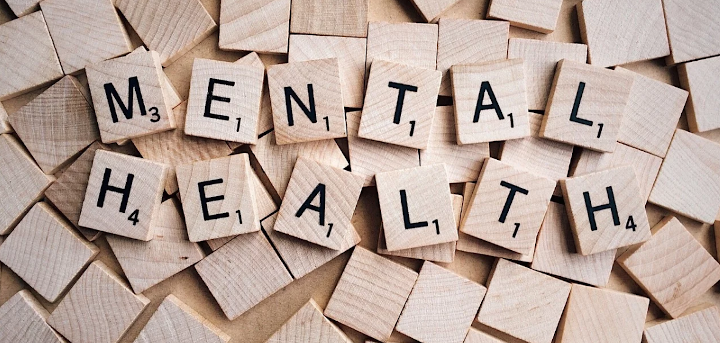Covid 19 and your mental health

Published on 20 March 2020 04:15 PM
At the moment, we are all being bombarded with worrying news about coronavirus. Through this difficult time, we want to support you and your mental health – equipping you with the skills you need to take care of your own, and others’, emotional wellbeing.
Although it’s vitally important at this time to follow recent government advice regarding maintaing physical health we appreciate that additionally adding focus on our mental health should not be disregarded.
The Government is likely to make some changes in light of COVID 19 to the Mental Health Act (1983).
We would like to share with you some useful links which you may find beneficial in these extremely testing times.
The first link is from Campaign against living miserably (CALM) and they offer a free helpline from 5pm until midnight, 365 days a year and they will talk to you about whatever is getting you down.
https://www.thecalmzone.net/help/get-help/
The second link is from MIND and is particularly related to coronavirus and your wellbeing and answers a lot about how this may be affecting your life.
https://www.mind.org.uk/information-support/coronavirus-and-your-wellbeing/#collapse7e928
Coronavirus: 8 ways to help yourself and others and keep things in perspective for your own mental health
Follow our eight practical tips for looking after your mental health while dealing with the coronavirus outbreak.
When something like a virus outbreak happens, it’s easy for us to feel like we don’t have control and this allows anxiety to flourish. Taking back control in any way we can help, and that includes taking care of your mental health and looking out for those who may be more vulnerable.
Here we look at some ways you can regain a sense of control, ease anxiety and support others.
- Switch off notifications and tune into official information
As with many things that get picked up in the news, there is a lot of misinformation about coronavirus. It can be easy to get sucked into these articles, clicking on link after link until your head is swimming with panic-inducing headlines.
If you have news notifications set up and you’re finding they are triggering anxiety, switch them off. Try to limit yourself to only reading information from official sources such as the NHS and Public Health England. If you’re not UK based, take a look at World Health Organization and the Centers for Disease Control and Prevention for updates.
- Spring clean your social
Sometimes it isn’t news outlets that trigger our anxiety, but the people in our social media feeds that have us worried. Perhaps you follow someone who is sharing unofficial news updates, or someone who is talking about it in a way that feels uncomfortable to you. Whatever the reason, remember that there is no shame in unfollowing or even temporarily muting someone from your feed. Focus on following uplifting accounts that make you feel calm and in control.
- Ask before analysing
With a subject as topical as coronavirus, many of us will find ourselves talking about it with our friends, family and co-workers. It’s hard, however, to know how they’re feeling about the situation and whether or not talking about it will trigger anxiety in them.
Before you start a conversation, check in with the person you’re talking to about it. Are they comfortable having a discussion or would they rather you talked about something else? Similarly, be sure to share your own boundaries around the subject if you’re finding it tough to listen to.
- Try to understand opposing points of views
Panic buying and irritation about panic buying are two sides of the same coin – very normal, totally understandable human fear. Some of us panic to feel safe, some of us minimise to feel safe. Neither response needs to be mocked. We all react to news like this differently, and rather than turning on each other, being kind and offering alternatives can be more productive. Remember, we’re all human and are doing the best we can with the tools we’ve got.
- Shop mindfully, shop locally
According to Alastair George, Investment Strategist at Edison Investment Research, it’s fear rather than the coronavirus that may be the UK economy’s biggest enemy. You may have noticed a lot of shops are being emptied of their supplies and while it’s easy to understand how fear is driving this behaviour, try to only buy what you need and shop locally where you can. It’s small businesses that are most likely to be affected.
- Be aware of who you can help
If you know of anyone who may be struggling to get what they need, whether that’s information, health supplies or someone to talk to, see if there’s any way you can help.
Consider older people who may not be online or those with pre-existing conditions who don’t want to risk a trip to the shops. Speak to them and see what would be helpful for them and see if you can support or signpost other support to them.
- Consider where change to behaviour could be positive
It can be hard to see positives in a situation like this, but it may be helpful to consider how the changes we’re making to behaviour due to the outbreak could have positive implications. For example, China banned wildlife trade nationwide in January due to the coronavirus outbreak.
- Seek professional help
Whether you already have a condition like health anxiety or OCD that’s being triggered by the news or you’re simply finding your mental health is being affected, don’t be afraid to reach out for support. If you’re keen to see a counsellor but are worried about travelling to see them, look for a counsellor who offers online or telephone sessions instead.
You may also want to look into support groups and helplines that can provide peer support. Know that you’re not alone in this and it’s not ‘silly’ to be worried. You are well within your right to get help.
We are here to signpost you should you require our support.
Give our Customer Service Team a call Tel :0191 2877028 Option 2 or click on Contact Us
Helpful Mental Health leaflets
You can view, download and or print for sharing from the links below
More on Coronavirus
- Age UK National's Covid 19 information pages
- Gov.UK - NE England: local restrictions. What you can and can't do
- NHS 111 online - Check if you have coronavirus symptoms
- Gov.UK - Coronavirus (COVID-19): what you need to do
- Get support as an extremely vulnerable person
- Citizens Advice - Coronavirus - what it means for you
- Age UK North Tyneside Information and Advice
- Covid 19 - How to help safely (Gov.UK)
- Covid 19 Myth busters (World Health Organisation)
- Covid 19- Information for the bereaved from UK Government
- Gov.UK - Coronavirus outbreak FAQs: what you can and can't do
- Wellbeing and mental health during Covid-19
- Tyne Health's Long Covid resource hub
